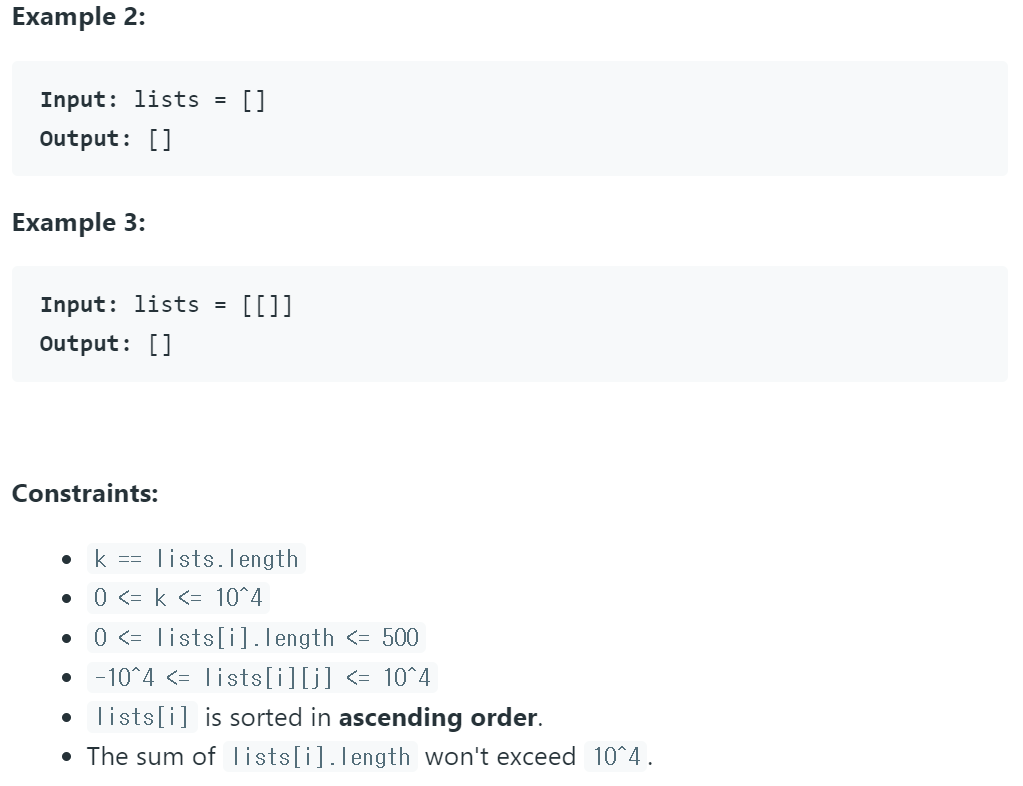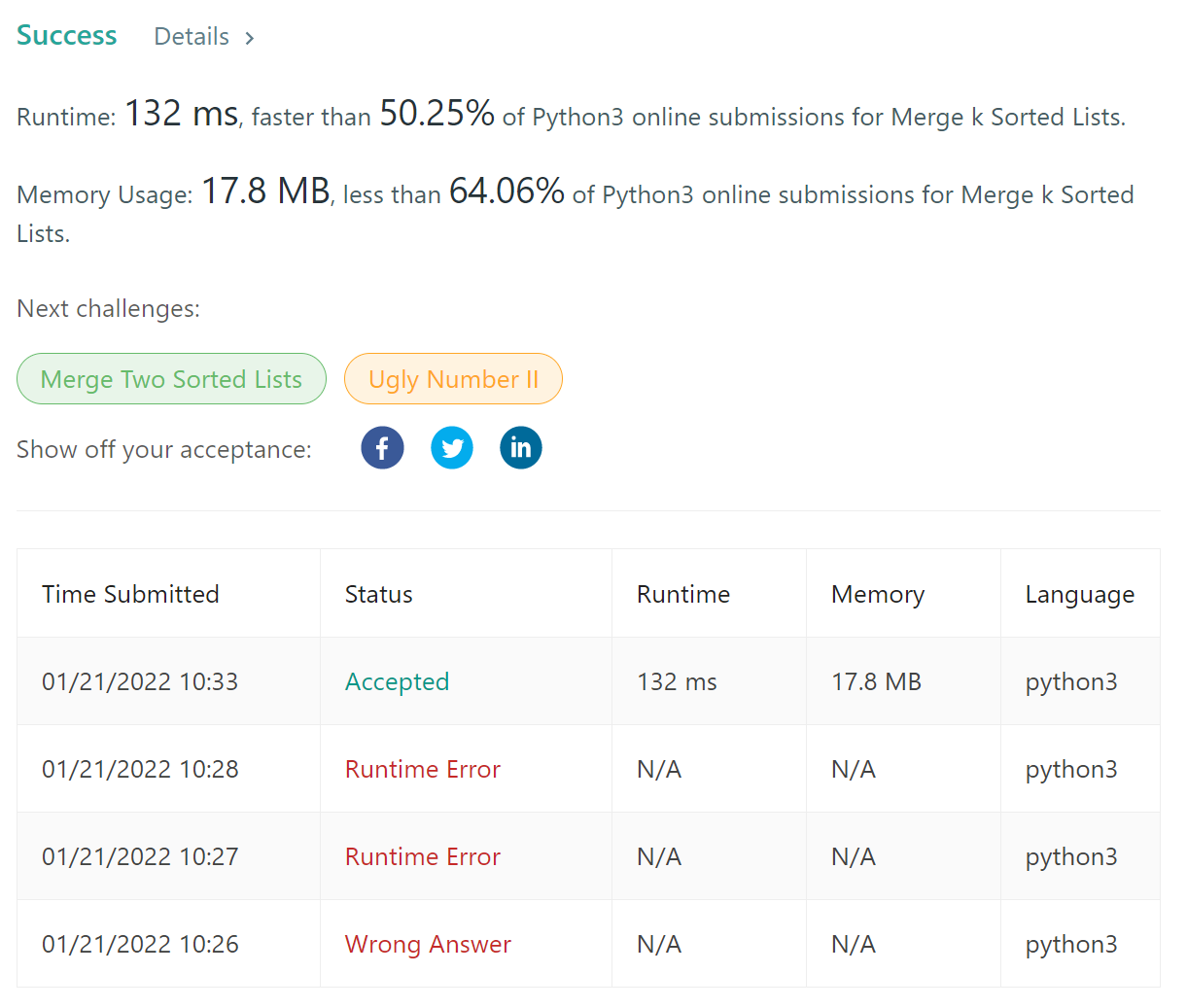

문제
- 각각이 오름차순으로 정렬된 linked list들
lists - 정렬된 하나의 linked list로 만들기
풀이
- heap 라이브러리 이용해서 해보면 되지 않을까...?
- 같은 priority를 갖을 때, 비교가 안됨..
- defaultdict(list) 이용해서 해볼까..
예외처리
lists가[]인 경우lists가[[]]인 경우
from collections import defaultdict
# Definition for singly-linked list.
# class ListNode:
# def __init__(self, val=0, next=None):
# self.val = val
# self.next = next
class Solution:
def mergeKLists(self, lists: List[Optional[ListNode]]) -> Optional[ListNode]:
dic = defaultdict(list)
for thisNode in lists:
if thisNode:
# lists = [[]]일 때 걸러내기
while thisNode.next is not None:
dic[thisNode.val].append(thisNode)
thisNode = thisNode.next
dic[thisNode.val].append(thisNode) # 마지막 node
# dict에서 빼서 정렬된 리스트로 만들기
sortedList = []
for key in sorted(dic.keys()):
for el in dic[key]:
sortedList.append(el)
# 리스트에 담긴 순으로 노드 연결
headNode = None
for ind, el in enumerate(sortedList):
if ind != len(sortedList)-1:
el.next = sortedList[ind+1]
if ind == 0:
headNode = el
return headNode
결과

두 가지 예외처리 경우 때문에 조금 해맸다.
리트코드에서는 항상 이런 None 값을 input으로 테스트하는 것 같은데, 다음부터 미리 예외를 생각하고 코드를 짜야겠다..!
